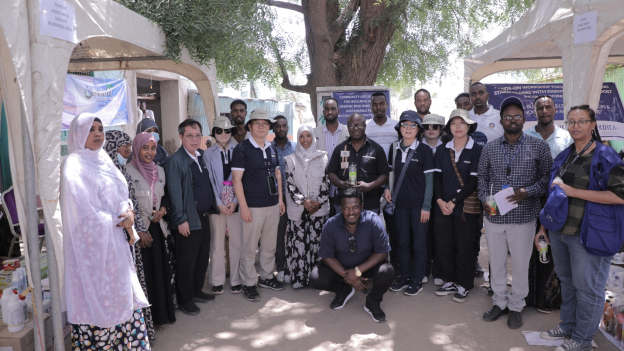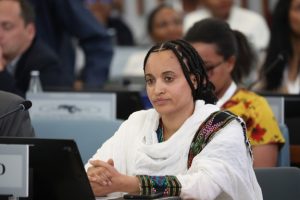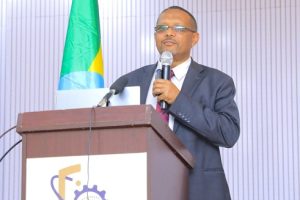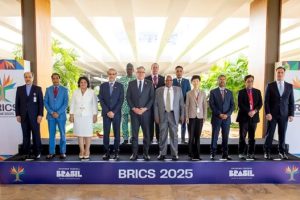
ADDIS ABABA – The Rural Business-to-Business (B2B) exhibitions have been playing a vital role in empowering displaced populations and their host communities by providing skills, resources, and market integration that promote sustainable recovery and lasting peace.
Held between April 5 and May 16, 2025, the exhibitions took place in East Hararghe, West Hararghe, and Moyale—areas located in the Oromia and Somali states of Ethiopia.
The events are part of an IOM-led project titled “Community-Led Solutions for Inclusive Socio-Economic Resilience Towards Sustainable Peace in Conflict-Affected Areas in Ethiopia”. The project is funded by the Korea International Cooperation Agency (KOICA) in coordination with Ethiopia’s Ministry of Peace.
The bazaars created opportunities for more than 1,500 entrepreneurs from both displaced and host communities to establish long-term trade relationships and economic linkages among rural producers, service providers, and small businesses.
Participants showcased a wide range of products including livestock, cereals, textiles, fruits, and natural goods, while engaging directly with buyers, distributors, cooperatives, financial institutions, and government stakeholders, according to the organizers.
The initiative aims to build peace and promote durable solutions by strengthening local economies, improving access to livelihoods, and fostering community cohesion.
Ambas Hassen, a displaced entrepreneur from the Somali state, shared his experience: “These exhibitions provided an opportunity to showcase our business, explore market opportunities, and establish future linkages.” He has launched a cereal banking business and a thriving live animal trading venture, generating additional income through exports to Djibouti. “The support we received has enabled us to build a sustainable future for our families and the wider community,” he added.
Ethiopia’s KOICA Country Director Han Deog Cho emphasized the significance of the initiative: “We aim to enhance market access, foster collaboration, and stimulate inclusive economic growth in rural areas—key elements for sustainability and progress toward durable solutions.” He also noted that the trade and investment opportunities created through the exhibitions signify a shift toward long-term self-reliance and social cohesion.
The Somali and Oromia states, which share Ethiopia’s longest internal border, are closely linked through cultural, linguistic, and religious ties. However, competition over limited resources has led to recurring conflicts and displacement.
IOM Ethiopia Mission Chief Abibatou Wane stated that supporting local economies through initiatives like the B2B exhibitions helps address the root causes of conflict by promoting cooperation, shared prosperity, and peaceful coexistence.
Beyond improving market access, the broader project also supports peace building, gender-responsive programming, and access to finance and technology, it was noted.
BY FIKADU BELAY
THE ETHIOPIAN HERALD FRIDAY16 MAY 2025




